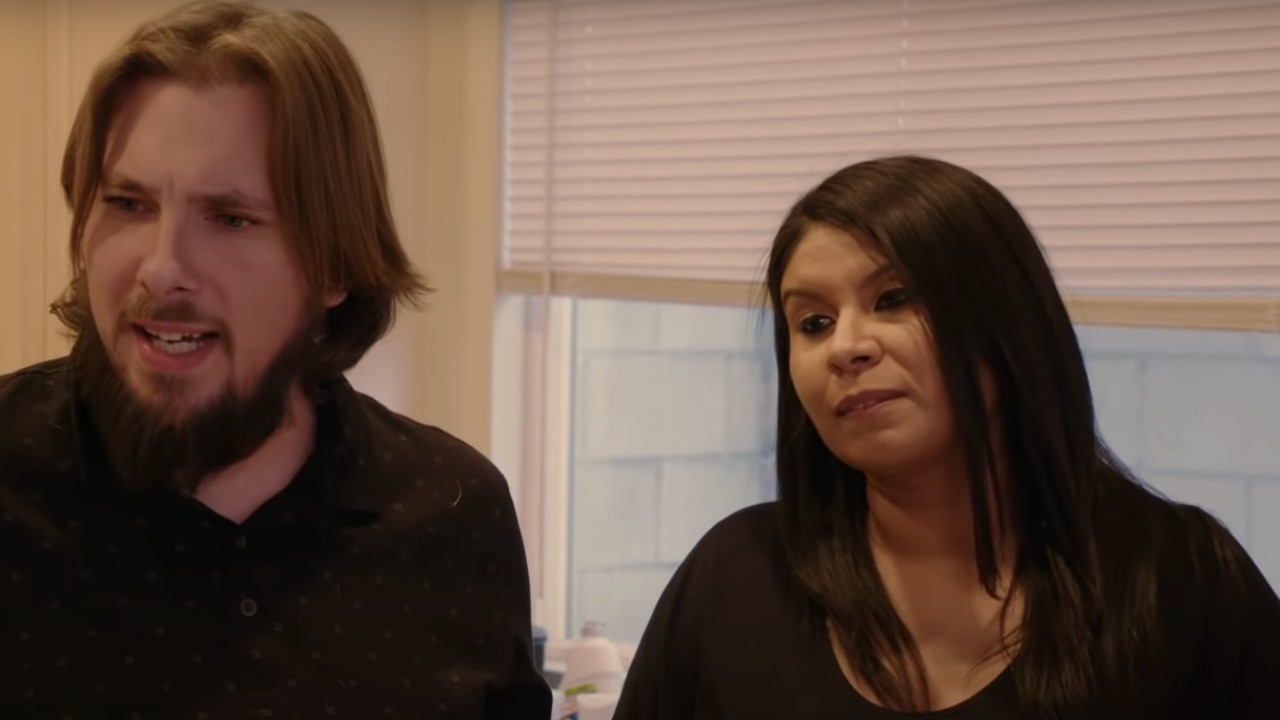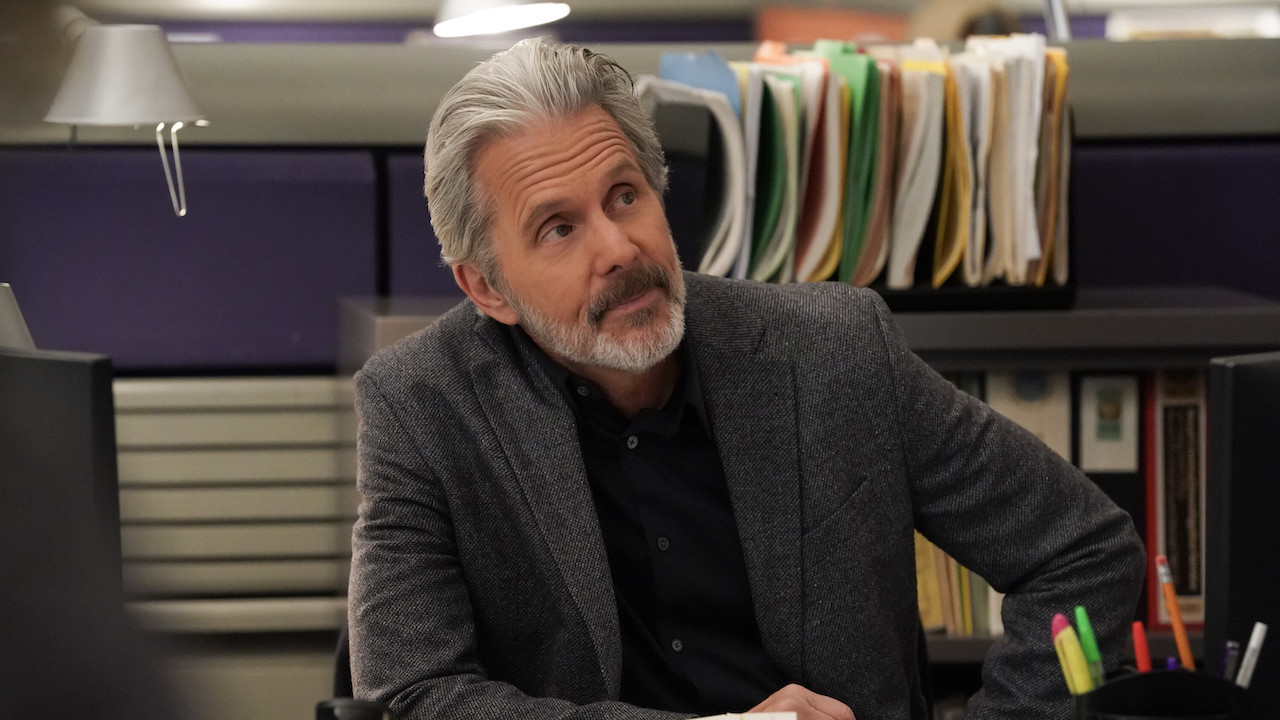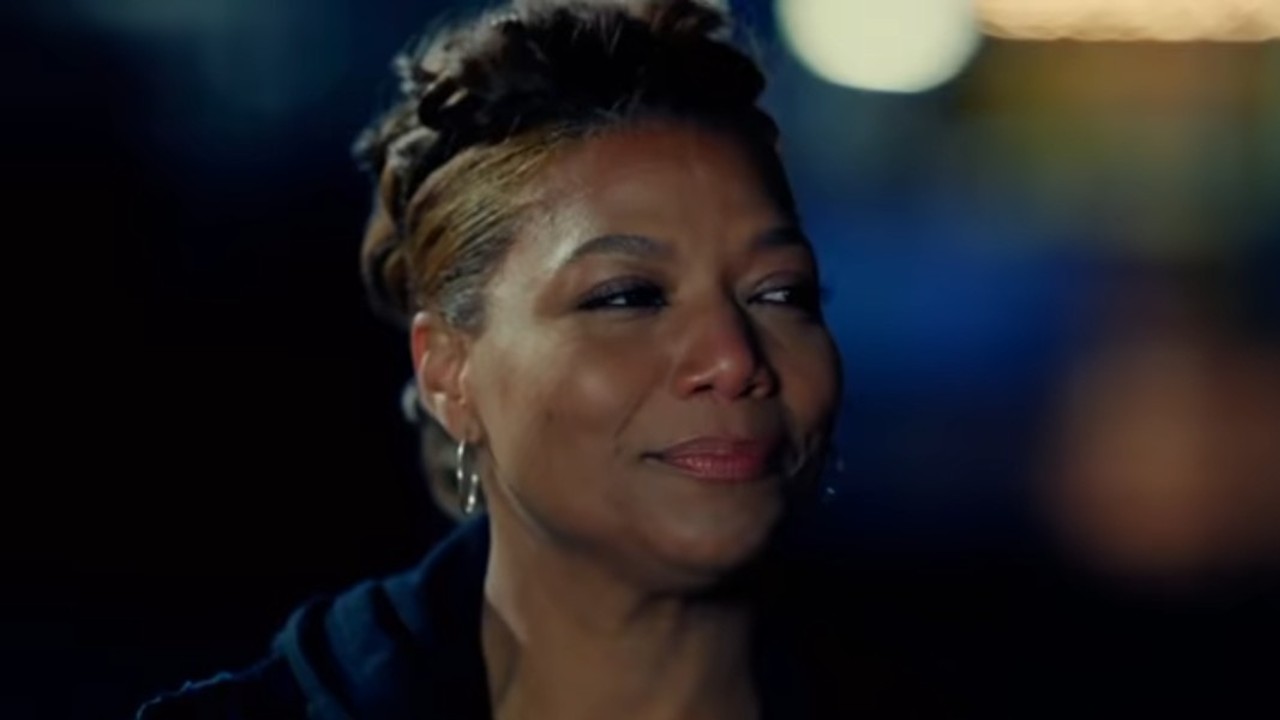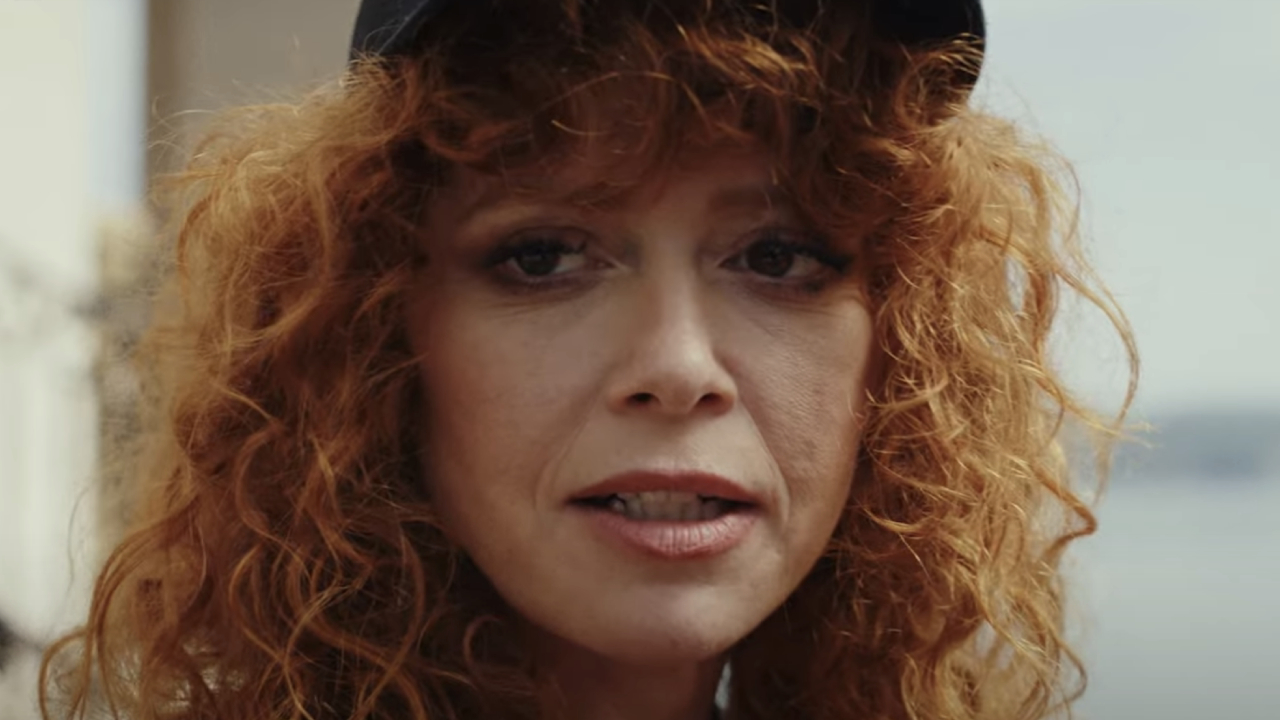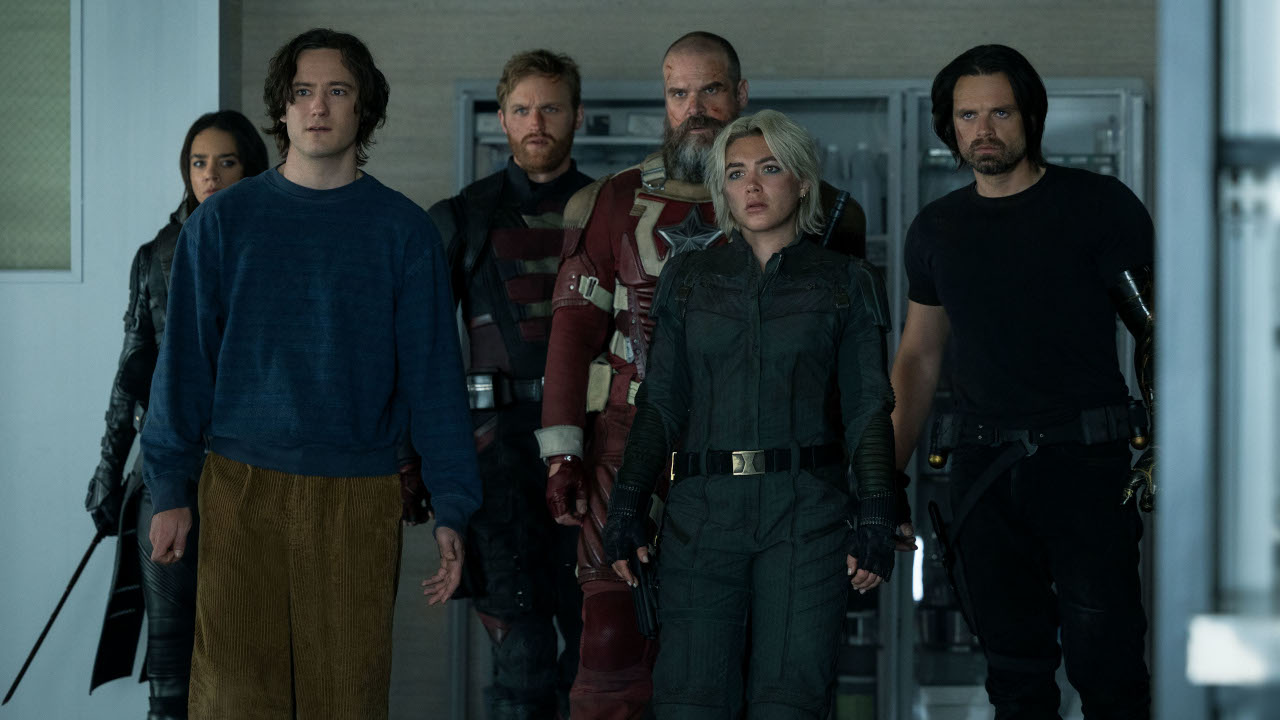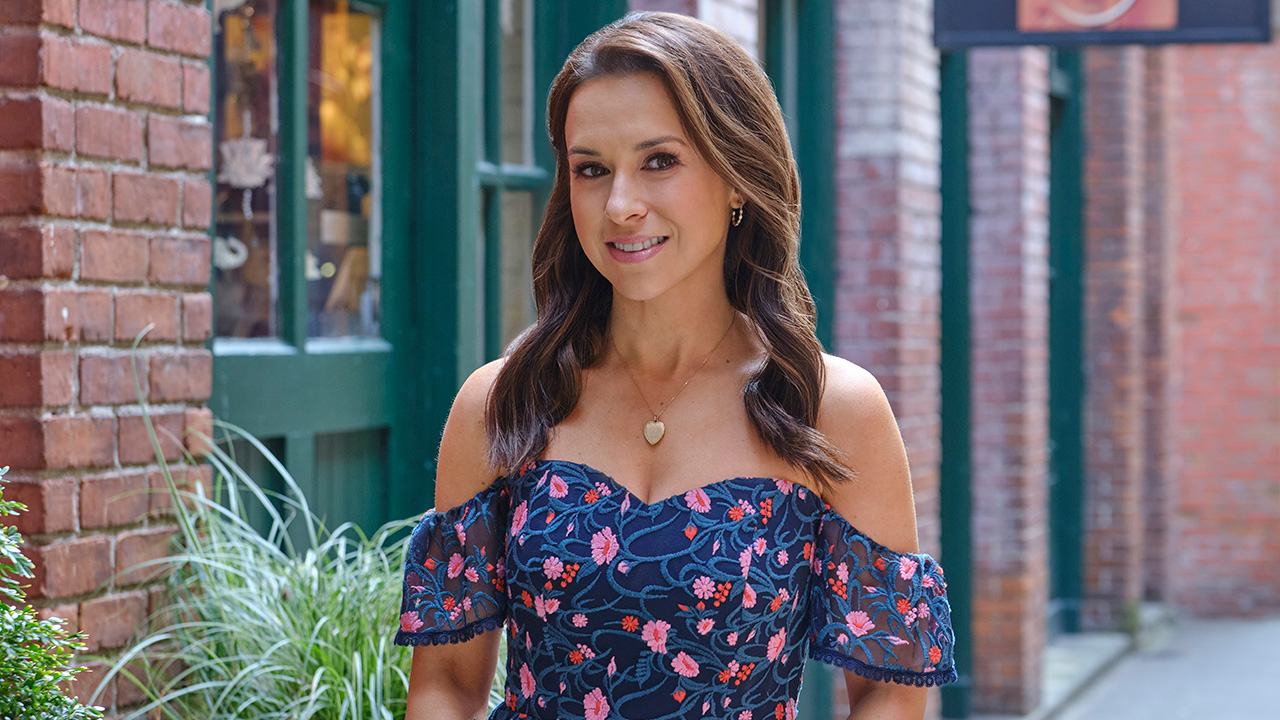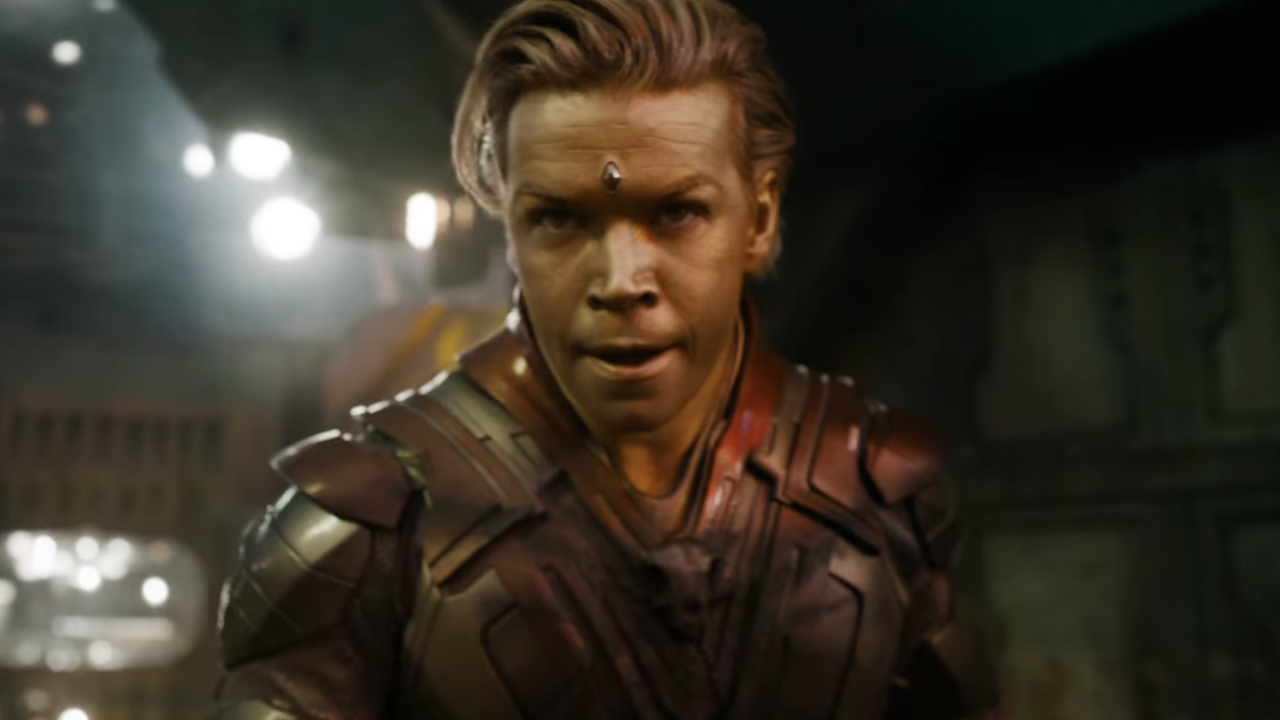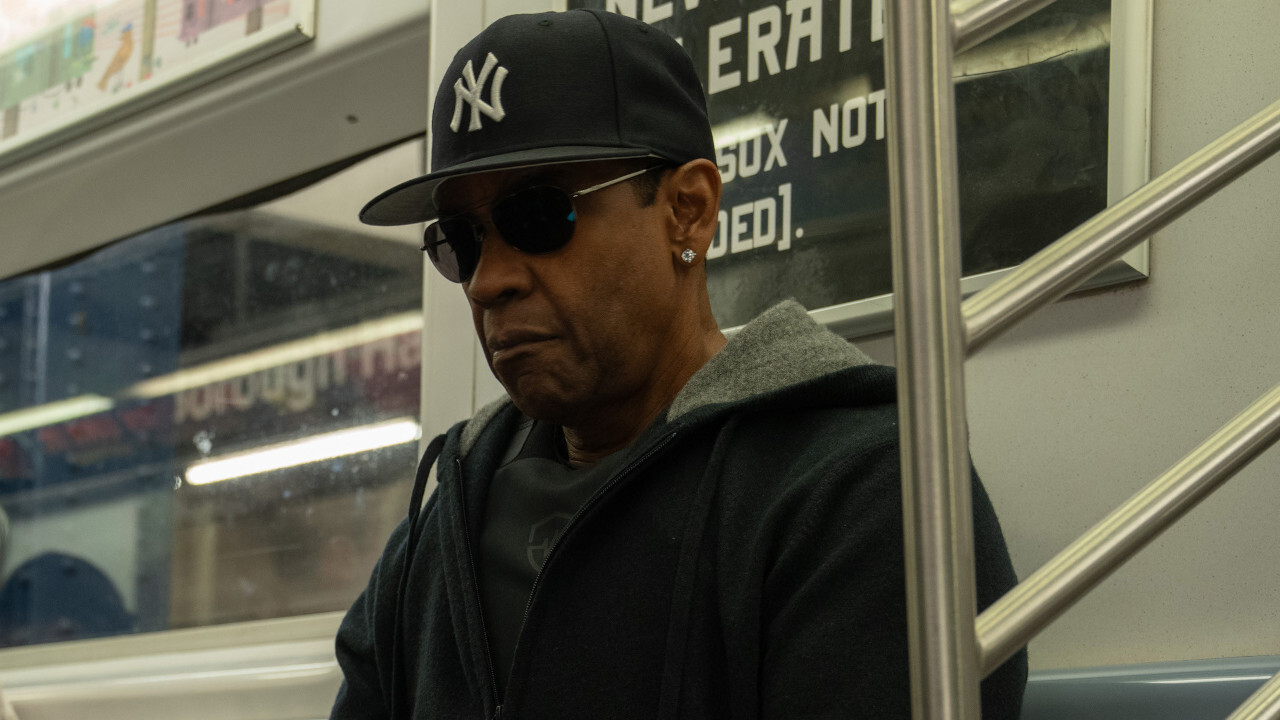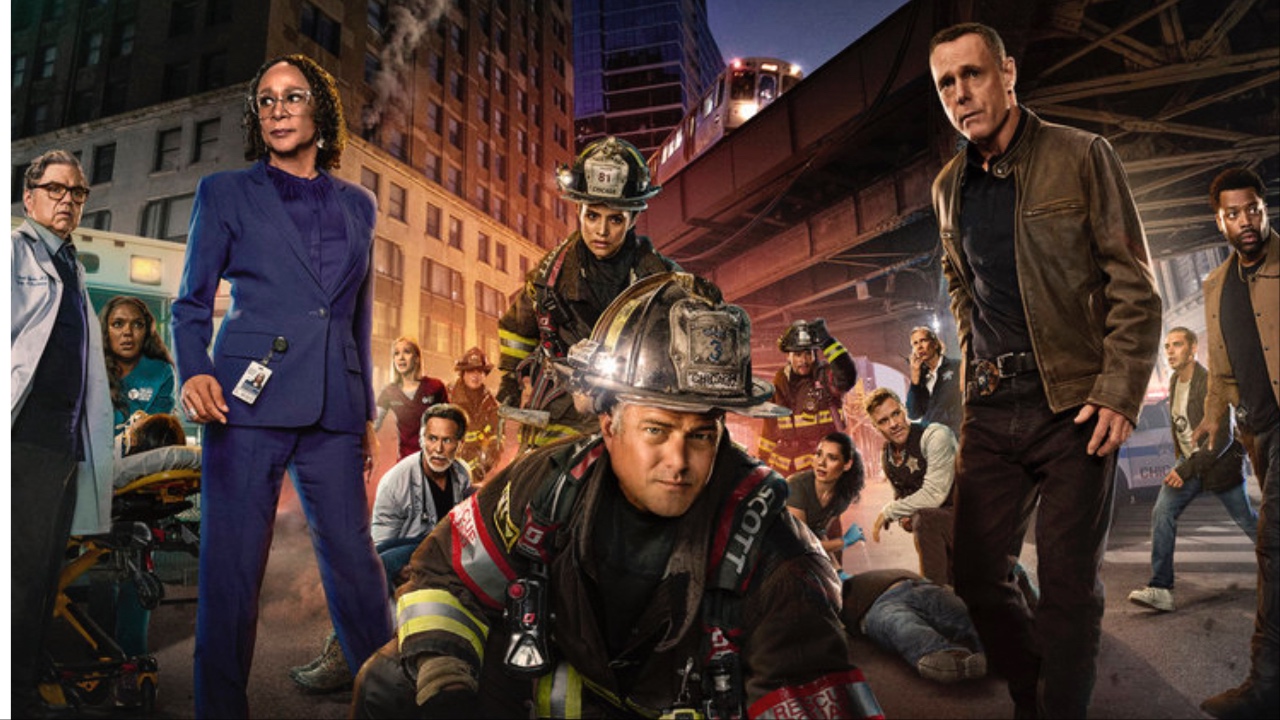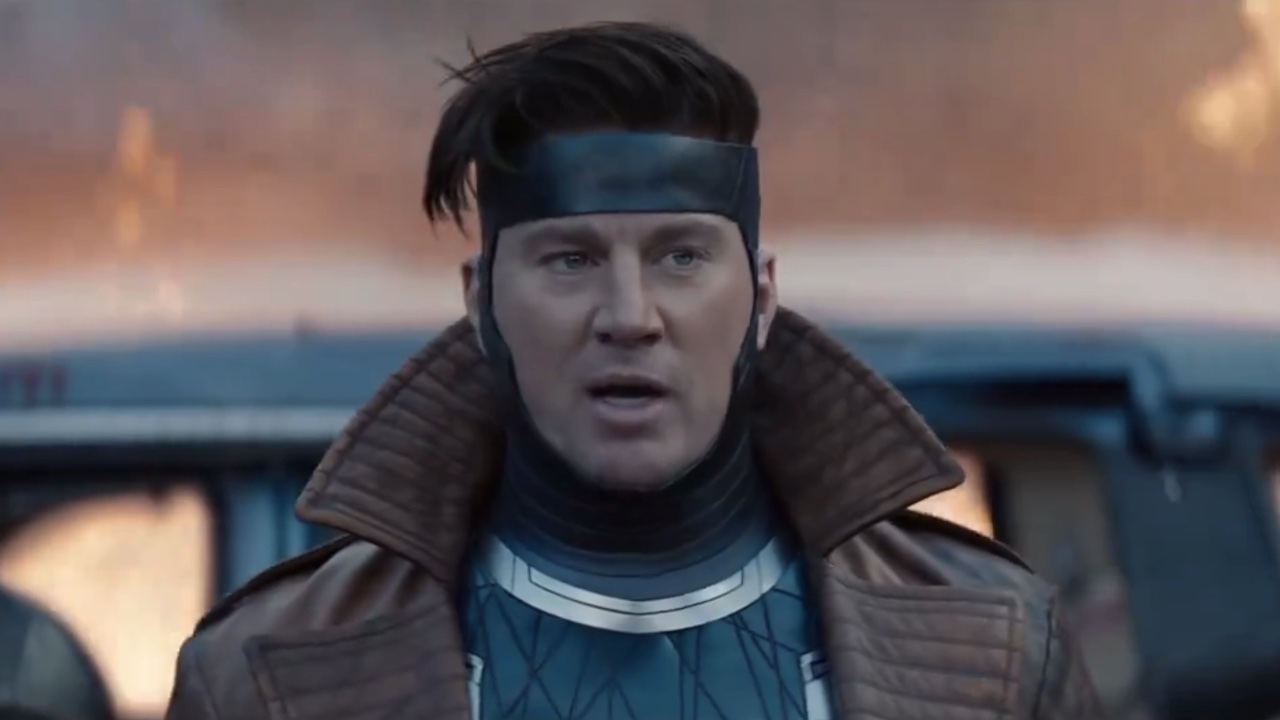Interview: Donnie Wahlberg Talks In Plain Sight
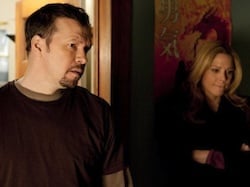
This Wednesday night, USA is set to bring back their original drama series In Plain Sight. Donnie Wahlberg, who has a guest-starring role in the season premiere, was kind enough to talk to the press on a conference call last week to discuss his role in the show.
In addition to sharing his thoughts on working on the show, the former New Kid on the Block also discusses some of his other numerous acting ventures, as well as his opinions on the witness protection program and his favorite TV shows. I think it's great that he's not afraid to admit his love for train wreck reality TV shows (Donnie! I recommend the CW's High Society.).
I’ve seen the episode and you were fantastic. What was it like working on a TV series again?
It’s different as a guest as opposed to being a star of a series. A guest star is a whole different responsibility. It’s much different than being a regular. You come in and it’s a lot of unfamiliar faces and you want to try to fit in as best you can, but also you want to stay there without making waves. But at the same time you want to come in and be hopefully the best you can be and bring something new to the table. I’ve been a regular before and I know that it becomes not a grind. That series that I’ve been a regular in, I was very committed and very dedicated, but it was always fun when a new actor came along and brought something to the table.
All that said, I felt incredibly welcomed. I also knew that there was a really a new spirit going on on the show. That everybody was really looking to raise the bar for season three with John McNamara coming in. I felt like I was playing with a team that was really trying to great. So everyone was very encouraging and very welcoming of me.
I was wondering if you found there was instant chemistry when you began working with the cast. I know sometimes it takes a little bit of time to develop, but did you find the rapport was instant?
It was pretty instant. I think when we did a table read a few days before and I got to sit next to Mary McCormick and she was very gracious and stuff. But I felt, again, very safe. I’m not a big fan of table reads or sitting around a table and reading a script. I’d rather do it on set and do it for real. I generally hate table reads, in fact, but it was a great atmosphere and everybody really seemed excited I was there. The regulars on the show were just very welcoming. I think part of it is maybe is the New Mexico charm that everyone has down there. But at the same time, I think there’s a real great spirit on that show and it starts at the top with Mary and Fred and they’ve very, very gracious.
CINEMABLEND NEWSLETTER
Your Daily Blend of Entertainment News
I know you started out in the music industry, so how did you move into acting from there?
Actually, in high school I was one of the cofounders of New Kids on the Block my freshman year in high school. But I also started studying theatre in high school my freshman year as well. So throughout high school, I was actually doing both. I would do a concert maybe at a night club or wherever we could get a gig as New Kids on the weekends. But during week days, I was doing plays and writing plays and starring in plays all the time.
When New Kids became really successful, I got a lot of offers to do parts in movies and TV shows, but I was really busy, so I pretty much turned everything down. But I always knew it was something that I would eventually put some energy into. It just so happened that when New Kids finished riding that wave, that first wave of success, the offers weren’t coming anymore. So I had to go out and hit the pavement like most actors and start from the ground up, which I think is one of the greatest things that happened to me. I think maybe taking movie roles and stuff when I was getting them offered to me because I was in a musical group, I think that could have been damaging to me.
I think having to go out and start, I don’t want to say as a has-been, but sort of in a band that wasn’t really popular anymore and wasn’t selling records anymore, I think it forced me to really dig in and do what most actors do, which is to hit the street and go to audition after audition after audition and keep trying to break through until someone gives me a shot. I think that Ron Howard was the first person …that gave me a shot. Once I got a taste, I just wanted to keep doing it and doing it and doing it. I fell in love with the craft and that’s how I did it.
Just letting you know you’re talking to a soldier, so be calm.
I think I got a Tweet from you.
I think you got several Tweets. I think everybody went a little crazy.
That’s okay, that’s good stuff.
Ironically talking about my fellow sisters, the question I have to ask you, actually, comes from a fellow sister. I inquired what everybody wanted to know. And so keeping with the theme of the show, which is witness protection, how do you think it would be to really give up your identity and become someone else in order to remain safe? What would you miss and what wouldn’t you miss?
I’ve thought about it before, actually, just in time when fame and success gets a little challenging. There’s been moments when it was what would it be like. I’ve been lucky enough to travel to many, many places. And there’s times when I’ve been in some really obscure towns working and I thought about what it would be like to set up shop here and just kind of disappear and just be like anyone else. I guess because I’ve been in the spotlight so often in my life, it’s sounded really appealing to me. But I think I’d probably eventually get pretty stir crazy. I’m sure I’d miss all the things that that I take for granted.
I think in my experience in life speaking to people or knowing people who’ve lived on the run or lived with a false identity, it’s really one of the hardest things to do. A lot of fugitives eventually who are living on the run usually turn themselves in because they can’t the pressure of living a false life and hiding anymore. It’s a lot of stress; it’s a lot of pressure. It’s a pretty big weight to carry around.
I don’t know if you meant specifically in a witness protection situation or just living in a different life of hiding out somewhere. But I think it would be fun for a while, but I think eventually I’d miss probably everything, simple things like going to the supermarket and saying hello to my neighbor and not wondering if they’re going to recognize me or not. That would be a lot of pressure, I think.
I saw the episode and you were fantastic. It was really nice to see you in the role of a dad. How can you relate to your character on In Plain Sight and what element of yourself do you see in the character?
Well, I think being a dad, that’s certainly something I was able to relate to immediately. I have a 17 year old boy and I’m starting to experience what that means, the different things that they get into, 17 year olds and teenagers in general and the pressure and sometimes the head scratching that comes along with it. It’s amazing. There’s so many clichés about getting older or are kids doing things that we did or having their own way of going about doing similar things to what we did and I’m experiencing it all right now from the flying to the styles to the music to everything. I thought everything that I liked when I was 17 was the coolest. But I guess liking a band like New Edition is like my mom loving the Four Tops to my 17 year old. It’s not so cool to them.
But I think that was really the thing that I zeroed in on the most was just being a parent and understanding the pressure and responsibility of taking care of and protecting the child. There’s a lot of ….and stuff on the show and different elements that I actually borrowed from a friend of mine who’s had similar life experience. I talked to him about it and brought those things to the table in terms of witness protection and stuff like that. But I think really the thing that was most important thing to me was the family aspect of it and the responsibility that a dad has, no matter where he is or what his circumstances are. I think my character on the show was just, it was just important for him to be a good day when he was out of the streets being a criminal as it was for him being a straight laced guy in this witness protection program. His son was the most important thing to him in both scenarios.
I loved the ski mask. That was pretty sweet.
The ski mask? I couldn’t keep it from blocking my eyes, but it worked out okay.
Growing up in Boston with guys like Whitey Bolger in the city, how easy is it for you to relate to that world ….?
I was never really around Whitey Bolger. He was a little bit before at least me and my brother, Mark’s, time. He was a little bit out of the way by the time we really started, when we were out in the streets. The thing is that Boston is such a small city that everybody knows everybody. So even if I never crossed paths with Whitey Bolger directly, I know a lot of people who did. I know a lot people who did their thing as well and basically do what they had to do to survive or made a choice to survive a certain way. But there’s always something to draw on. There’s always someone that you could just pluck off the street, a friend, a cousin, an uncle or somebody who you could look at as a character study for a character like Jimmy. But the thing for me also is that whenever you play somebody who comes from your home town, it’s sort of responsibility to not goof it up.
Nobody wants to be that guy that is representing somebody built from a character or characters from Boston. It may be the worst thing in the world to get it wrong and we take pride in people getting it right. So it adds a little pressure to it as well. It makes it easier in some aspects because I have a lot to draw on, but at the same time, it does put a great pressure because if I stink it up as a Boston guy, then I’m going to get a lot of flack when I come home.
The question I have for you is throughout your career, you’ve done a bit of everything, singing, dancing, performing live, movies, TV shows. Which of those have you enjoyed the most and why?
It’s really hard to say. If you asked me six months ago, I would say probably doing concerts again. But if you asked me six months before that, I might have said song writing. If you asked me six months before that, I might have said acting. If you asked me today, I’m shooting something right now and working with an amazing team and just work In Plain Sight, which was a really, really great experience. I’m really enjoying acting again right now.
So I think I’m smart enough and honest enough to know that it’s really all of the above. I think one thing I do is I really get an incredible high off of the creative process. That extends with acting, beyond just being on screen or being in front of the camera. I love sitting down with a director and a writer and bringing different ideas to the table and really diving into a character, the behind the scenes, the preparation, the rehearsals, the wardrobe.
I love it all. I love being creative. I love being around creative people and that’s really it. It’s music or movies or acting. I love the rush of being creative. I really think I live for it. It kinds of fills my soul and so I’m very lucky. I remember my time in New Mexico, I just really started sort of shooting In Plain Sight, I really felt myself getting back into the groove. I was a little rusty at first, but after a day or two, just having that rapport with other actors and a director, it’s an amazing high that I get from doing it. I take great pride and I have a great sense of responsibility for it. I don’t know if I answered the question, but I tried.
We were wondering if you could tell us about the Send a Kid to Camp charity event that you held with your brothers earlier this week.
That was actually an event that I had planned or wanted to do for a while. Mark and I do different events with the Mark Wahlberg Foundation. He does a couple different events a year. I tend to pick specific things that I want to do and I will do it in conjunction with my brother, Jim, who runs the Mark Wahlberg Foundation. As an example a couple of years ago, I did a fundraiser for Hurricane Katrina and I put it together and was the host and the force behind it. But Mark lent his time and energy to it as well and we end up raising with the week of preparation, $750,000 for Hurricane Katrina.
I know there’s poker has become a very popular game. I know there are tons and tons of poker players in Massachusetts, so I have tons of relationships. But I just thought it would be a very successful way for us to raise money. What we were raising it for is to send inner city kids from the neighborhoods that we grew up in to go to summer camp and to be able to do something that we never could do. We didn’t go to summer camps. We hung out on the street corners and either got in trouble or not, depending on what the day was and what we got into.
So this is something that was really important to us was to give inner city kids something constructive to do and something that may steer them in a different direction than the options and opportunities that we had ourselves. We raised $300,000 incidentally. And we’re going to be sending, I think, 200 kids to camp this summer and next summer off of the success of that, so it was a pretty amazing night.
Your character on In Plain Sight is a bad boy with a big heart and in New Kids, you were considered the bad boy. So is it more fun to play a shady character and why?
I don’t know. I think I enjoy playing all types of difference characters. I think the challenge with this particular character was to do something different with the character that was somewhat similar to things I’ve done in the past. I played a lot of cops. He’s obviously not a cop, but it’s tricky because in playing this guy, I didn’t want to do things that I’d done before, mannerisms or certain behaviors or actions or even the way that I spoke.
But at the same time, I didn’t want to be too selfish because the character is written, the way he’s written for a reason. My insecurities or whatever, I didn’t want to bring those to the table and try and to overdo something in order to satisfy myself and say I made this character different than anything I’ve ever done and it’s very unique. I wanted to accomplish that, but at the same time, I couldn’t do it in a way that was selfish and not in the best interest of the show.
John McNamara is an amazing writer. He wanted me for a lot of specific reasons. Those sort of things that he saw in my past work, it’s a responsibility for me to bring those things to the table and then add something to that. So I’ve played ballroom dancers. I’ve play psychotics. I’ve played cops. I’ve play silly cops and serious cops. I’ve played so many different roles, but I just try to take each role based on the material. And if I like the material, then I’m attracted to it. If I’m attracted to it, then I’m going to give all my energy to it. And if I give all my energy to something, it usually if nothing else, then I know that I’ve been committed and gave all I could. And I usually feel very satisfied at the end when I’m in that predicament. If I don’t like the material, I just generally pass, no matter what it is. If it’s a studio movie or a big opportunity, if I can’t pile into something in the character, I usually don’t do it.
You have played so many diverse characters from obviously the psychotic that you said and one of my favorite characters is from Dreamcatcher, Duddits. Playing harder characters like that, was it just harder to get into those types of characters? Or do you think it’s harder to get into the character like a Jimmy versus going into something a little bit darker?
Well, I think every character presents a difference challenge and a different opportunity. It’s just some characters require a different level of commitment, other than internalizing the character and making it my own.
The Sixth Sense, for example, I sort of underwent a physical transformation. And in committing to the physical transformation, that actually helped me emotionally get to where I needed to get. I suffered a lot in my preparation for that part. And so when it came time to shoot, I really was a lot closer to the character I was playing because I suffered. I wasn’t sitting in a cushy hotel rooms eating lobster every night, waiting for them to call action. I was really committed to a certain physical state. And as I was preparing alongside that, it took me to a tremendous emotional places that allowed me to really play the character a certain way on screen.
For Jimmy, I think it’s certainly not the same type of preparation process. But what I did similar is I engaged in things that would help transform me. I went into New Mexico early and I kind of laid low. I usually end up in a ….and I get on the Blackberry and start Twittering and meeting with fans and having dinner and stuff like that. I have no problem going out and about in towns that I go to and meeting people and engaging people.
When I went to New Mexico, I really wanted to lay low. I wanted to feel alone and not really attract a lot of attention. In fact, I wanted to do the opposite and I did that. I spent probably the first week just sort of hiding out and not really being specific to anyone about where I was. In doing that alongside of my preparation for the character, I think I did isolate myself and create a little bit of loneliness. I only had about a week to prepare for the show, so that’s really all I could do, but it helps. Every amount of preparation helps. Every little ounce of it helps and so I did as much as I could and being isolated down there in New Mexico wasn’t really the same as having been in the witness protection program for a long time, but I certainly got enough of a feel and an energy around me that I was able to bring that do work everyday.
I’ve actually been going through the Boom Town on DVD the first and second season, great work there. I wondered is it hard for you to transition, you do two seasons a show or three seasons here or a movie there, and there are gaps in between it. Is it hard for you to transition between character to character?
It depends. It’s always easier if you like the material. If I read a character that just jumps of the page at me, then that usually gets my juices flowing and gets me really excited about wanting to do it. Sometimes I can read a script and just really ideas and idiosyncratic behaviors are just popping in my mind about a character.
But the reality is we work in a business where we’re at the mercy of a lot of outside factors. With Boom Town, I had a great time. I loved going to work every day. I loved my character, I loved the show. I loved the people I worked with. But there’s an audience that has certain demands. There’s a network and sponsors and all these different people who have certain demands. If we can’t meet them, which is really beyond my control, then the show stops.
I think I do a pretty good job of letting go of that which I cannot control in this business. It’s my obligation and responsibility is to bring as much realness to whatever character I play, to be as committed as possible to the project and the character. That’s why I gravitate towards material that I like. If I read a script and I don’t like it or I don’t find something that I think would be fun or challenging in a character, I generally walk away from it. I think giving my all to what I do is really the only thing I can control and what’s what I try to focus on.
It’s easy to change gears and go from character to character if I’m committed and focus. It’s not easy if I don’t care about what I’m doing. It becomes a burden and a drag. So I try not to do that.
You touched on some of your charitable projects that you’re working on. I was wondering what other film or TV projects do you have going on these days?
I just finished shooting a film called Zoo Keeper with Kevin James and the voices talents of Adam Sandler and Sylvester Stallone, Nick Nolte, Cher. That was great, great to shoot that film. It’s a comedy role for me. It’s a very big comedic studio film. It’s something that I haven’t gotten a chance to show in my repertoire. It makes me excited. And so to do a film like that was going to be seen by so many people is really, really exciting for me.
I’m currently shooting a pilot for CBS, just at least tentatively titled Reagan’s Law with Tom Selleck and myself…..Alexander. I’m really excited about that as well. I think that this opportunity in some ways is indirectly related to In Plain Sight. I think In Plain Sight, working on a television schedule again, working with a great writer like John McNamara and a great cast, it really invigorated me and reminded me how much I like working on television.
It was amazing to do a film like Zoo Keeper, but I really have always loved television, just for the work, the amount of hours I put in and the amount of energy it takes and the consistency of it. I love to work really hard. I love to stay close to the character I’m playing. A lot of times it becomes you work two days, you’re off for a week. You work three days, you’re off for a month. Dragging a character out over that much time and not working very often, it can be very challenging.
With television it’s sort like a nine to five. I’ve always loved going to work every day and staying close to a character. So I think In Plain Sight relit that fire for me and indirectly a lot of relationships that I have in the CBS pilot that I’m shooting are sort of somewhat forged from my time on In Plain Sight. It’s about three degrees of separation in a lot of instances. I think those degrees are connected. I think In Plain Sight actually directly led to me finding myself in shooting this pilot.
You spent an awful lot of time acting for TV. What do you watch? What do you like? What characters do you like to see every week?
If I tell the truth right now, it’s probably going to make no sense. I’m kind of a big reality TV guy. I don’t know why. I like a lot of train wreck television or something. I like Bad Girls Club. I like Tool Academy. I like Jersey Shore, but I also like Dog Whisperer. I watch a lot of Food Network. I like Iron Chef and Chopped. I like the Dog Whisperer. But in terms of characters on television, I’m really big into the timeless characters. Colombo is one of my favorites. Rockford Files, Streets of San Francisco, M.A.S.H., I sort of love the a lot older series, a lot of series from the ‘70s. A show that’s sort of similar, I don’t think there are many shows nowadays that are similar to those kinds of shows, but the shows that are built around really fascinating characters. I think The Shield is one and The Sopranos is another one, shows that have a really, really an amazing central character and an amazing cast around it. The characters that aren’t necessarily like the movie star type or just that sort of typical Hollywood leading man. Those two examples, The Shield and The Sopranos have very, very different sort of guys, very regular guys in very amazing circumstances at the center of them. And those kinds of shows really appeal to me.
But I grew up watching classic movies with my dad and classic television with him as well. I tend to gravitate to that type of stuff. That has no connection to any of these reality shows that I mentioned. I think that those reality shows are just fun. They’re a way for me to turn off my brain a little bit. I work a lot as you know, Laura, sometimes 22, 23 hours a day. Just being able to tune out and watch silliness like Tool Academy on VH1 is pretty funny at times.
So my question is I come, actually, from a really big Irish Catholic family as well. There’s one minute where we’re jumping on each other wishing to beat the crap out of each other. And there’s other moments where we are the best friends in the world and we know somebody always has our backs. So for you coming from a big family, not just from your brother, Mark, but how has your family and your support system played into your career that really could have gone in so many different ways and not to the success that it has?
It’s hard to say. I don’t know that I really had anybody looking over me saying, hey, make the right choice. I think, in fact, it was the opposite. I had a lot of brothers screwing up in front of me. It was up to me to look at them and say I could do that they’re doing or I could make a different choice. That’s what I did. I think my tolerance for danger wasn’t quite as great as some of my other brothers. I might take a ride in a stolen car once in a while, but I wasn’t going to get behind the wheel and hotwire the thing myself. I guess my threshold for pain and trouble and danger was just a little different.
I think I was really lucky also in the school that I went to. As I said earlier in I think in the first question, the first or second question about music or acting, I was very fortunate in that I went to a Boston public school. In my first year in that school, the city was experimenting with a new type of high school format. I was able to take theatre class for two periods a day. That was an amazing situation to be in, to be in a school like that where arts was really a prominent part of the curriculum.
I think I was able to find ways to channel a lot of my energy into positive things. I was in New Kids on the Block outside of school and in theatre inside of school. Being committed to doing a play, it’s a lot of work. It’s a lot of commitment. I didn’t want to get up and embarrass myself in front of the whole school. I wanted to be ready and I wanted to be the best that I could be and I had a commitment to that and to my fellow classmates in theatre.
I think it A, gave me an outlet for my energy and B, gave me something creative to do to take my mind off of the other bad opportunities that were there for me. Again, that’s why something like the camp event I did the other night with my brothers is really important because creating opportunities for kids to find other avenues for their energy is something that I benefited from. I certainly want to give that opportunity to other kids now.
Something that you said earlier struck me and I was thinking if maybe you taken some of the roles that you were offered while New Kids were hot, if you had the time, you might have had a brief career as a big name star, but it might have faded when the New Kids did. And the way things played out I think is actually better because you got a really solid reputation as a character actor with a wide range. On the season premier of In Plain Sight, you reminded me a bit of ’70s, ‘80s icon, Charles Bronson. It got me wondering—
Wow, that’s a compliment, thank you.
Who are the actors that you like that you most appreciate in terms of presence, acting skills and have any of them influenced you?
It’s funny. Your description of me is sort of how I like to think of myself. I think I agree with you a lot from you’re saying. I think jumping into a leading man situation when I wasn’t ready probably could have been disastrous. Doing it at that early age when I really hadn’t worked for it might have sent me on the wrong path because it took me a while to realize that I am character actor and that’s what I want to do. That’s what I want to be.
I look at actors like Gene Hackman and he does the kinds of roles that I aspire to. He’s the kind of actor I hope to be like one day. He’s very much a character actor, but he’s also capable of being a leading man at times as he did in The French Connection and being incredibly good at it. But like James Gandolfini is another example. And then there are actors like Michael Parks, who a lot of people don’t even know who he is, but every time I see a ….movie and he pops up in a totally unrecognizable role, I’m just amazed by him and I love to do those kinds of things myself.
I think had I jumped into acting just because the opportunity was there because I was very famous in the musical group, I’m not sure I might have taken the time to A, put in the work that was necessary to be the best actor I could be, but also B, to identify what I really wanted to do and the kind of roles I wanted to play. When The Sixth Sense came along, for example, that’s a role that I jumped all over it. My manager at the time told me to pass on it. It’s like it’s a day of work, what good is that going to do. It’s blah, blah, blah. I said this is the best script I ever read and this is a character that could be very memorable if I could commit myself to play it. I would have done that part for free.
To be able to have that sort of sense of what I wanted to do and what was important to me, it really came from hard work and I’m building a career and not just having one handed to me. So while it was the biggest struggle, I’m certainly glad that it went that way. I appreciate the kind words you said and I think that’s really it. Sometimes people will say do you want, do you ever compete with Mark for roles or stuff like that. We never do. He’s a movie star. He’s a leading man and I’ve always thought of myself as a character and I take great pride in that. It’s really all I could ever hope for is to be having a good reputation as a really solid character actor. That’s really a great place for me to be in my opinion.
So can you talk about how you got the part? Is there an audition process for In Plain Sight?
It wasn’t an audition. It was actually I came, I met with John McNamara a few times in the past. We both expressed a mutual want to work with each other. John ….for something before, but I just didn’t quite have the right energy for him. I had just come off tour and he called and asked for a meeting and he said, “I’ve always wanted to work with you. I’m going to be running the show In Plain Sight now and I want to build a character for you. I think this is a great opportunity for us to finally work together.” So he sort of told me what he was thinking for the character and shared some ideas with me and asked me if I had any ideas. And I presented him with a lot of thoughts and I think we both saw it in a very similar way. He went and wrote the character.
I think for a guy who’s not from Boston, a guy who’s not from that world, I didn’t know what he would come up with when it was finally on paper. But I really only had minimal note for him. I think he got the talk right and that’s the hardest part. He wrote a guy that sounded like he was a Boston guy and sounded like he was a real guy dealing with real stuff and that appealed to me. So that was really the process. Fortunately, I didn’t have to audition because I pretty rather stick nails in my eyes than audition for anything. It’s many people as I’m saying in front of them in my life and acted in front of them and performed in front of them, I still get pretty nervous about auditioning.
You were talking about what script you would accept and what roles you like to take. One thing that came to mind as we were talking, you walk about from scripts that you don’t think you could have fun with, don’t think that would be good for you. Could you tell us a little bit about when you read a script, what is that magic in a role or in a script that makes you say this is it, this is what I want to do? Is it, of course, it’s the character and you being a character actor wanting to do more stuff? Is it the station in life of the character? What is it exactly?
Sometimes it’s—I think it’s a complicated question to answer because sometimes it could be as simple as reading a script in a certain emotional state and the script just connects. Sometimes there’s odd reasons as well. Obviously a script like The Sixth Sense, I just loved it immediately and nothing was going to prevent me from being a part of that movie. And then there’s In Plain Sight, where it’s a show that I like. It’s a leading lady who I think is incredibly underrated and incredibly talented in Mary McCormick. It’s a show that I think is fascinating and it’s a part that’s crafted for me.
And then there’s a movie like Dead Silence, which a lot of people may not have seen, but it’s a whacky kind of genre horror movie, but I really felt a great attraction to the character I played because I saw an opportunity to go against the grain in the role and do something fun, which I’ve done fun parts, but that particular role presented me with an opportunity to sort of goof on the movie, while being a part of it. I thought as I read the script, there was a lot of times I thought this is kind of preposterous. I saw my character sort of thinking the same things. And so I attached myself to that and I thought this would be really fun while everyone else is terrified in this movie theatre if my character just keeps thinking this is silly. This is silly, this is ridiculous until that moment when he realizes this is really happening and by then, it’s too late. That character wasn’t designed to be a funny character, but it ended up getting laughs throughout the whole movie.
It’s something that on first read a lot of people said why are you doing this movie. But for me, the character presented an opportunity for me. It presented a challenge for me and it gave me an opportunity to play a different color than I had. I may have looked at that role totally differently two years earlier than when it came along. I’ve been ready to go against the grain that much. I think some roles become more attractive or less attractive with more experience.
So it is what it is. It’s sort of like music. Sometimes I may hear a song and deciding whether it’s going on the New Kids album and it really may connect with me at a certain point because I’m in a certain emotional space. And I can be happy or sad or whatever and it may just be enough of a connection to the song, that it makes something that I have to be a part of.
Given the success that you and Mark had when you were young, what did you learn from each other now as men? It must be kind of unbelievable, just given the way you started.
I think we both, coming from the background that we come from and the life that we had, I think we’re both very cautious. I think we both walk around with a fear of a self fulfilling prophecy that inevitably one day for two street kids coming from such a crazy family with so much chaos going on, eventually somebody is going to come and take this all away from us. I think that fear in both of us, the result is a great work ethic. I think it’s the only way that we feel safe is to continue to work hard. I think we both have identified that hard work is really the only way to be successful and it’s the only way to protect what we’ve worked so hard for is to continue to work hard.
I think the minute I sit back and think, yes, I am a great character actor and I can do this, that and the other is the minute some other character actor who’s working much harder than me is going to come in and take my opportunities away from me. I just think that fight or that fear, I think it’s in a lot of people who grow in really tough environments. We had….for food on the table with eight brothers and sisters.
I think in Hollywood, it’s even harder. With every role, I’m fighting against hundreds and hundreds and thousands of other actors who want the same thing. It’s amazing. On the one hand, … we can say, yes, I have a pretty good body of work and I’ve done a lot of things and I continue to get opportunities. But on the other hand, it’s amazingly fortunate because there are so many actors who are out there fighting for the same things.
I know the minute I let up and don’t work hard or I take anything for granted, there’s a good chance it is going to go away for me and desirably so. It’s just my responsibility to build on the foundation that I have and to build something solid there. And the only way I can do that is with hard work. I know that Mark, while we don’t really talk about it that much, I know he feels the same way.
So going back to you were saying about the kind of roles you take and that, what would be your ultimate dream role, if you could choose or make up a role?
Wow. It’s kind of hard to answer. I’d like to think that I’ve played it a few times and that the next one is coming, the next dream role is coming along. I think in some ways, I’ve probably had that about four times. I think The Sixth Sense was a dream role because it was the ultimate challenge for me to transform physically and emotionally and to really—I didn’t set out to shock people or surprise people. I just set out to make that character real and to get myself as close to him as possible physically and emotionally. But I think for me that was a dream role because I should have never gotten that role. That role was written for a 14 year old skinny little teenager and at the time I got it, I was about 30 year old muscular very fit man and the director took his chance on me and gave me that shot.
Another dream role was in a little independent film that was at Sundance called Marilyn Hotchkiss Ballroom Dancing and Charm School. I played a very complicated ballroom dancer. Again, it’s a role that from where I come from and the upbringing that I had is just a role that I would have never envisioned myself being able to play. Being allowed to transform myself to that person and then got such a complicated character, it’s an amazing opportunity and it really is a dream role. It was a dream role for me. And then to do it with a cast that was in that in movie, it was Robert Carlyle and Marisa Tomei and Mary Steenburgen, it was just an amazing cast, that’s a dream role.
So I think every opportunity is a dream role. If the material is good and the challenge is there and quite frankly, if I leave work smiling, I guess to bring it full circle, again, I think doing In Plain Sight really—I was with a great cast. I was with a great writer, a great director, a great network and a great studio who all believe in what they’re doing and all really take great pride in their show and have fun. I left work everyday on that show smiling and feeling very lucky to have an opportunity to work on something so fun.
I think any time I can leave work at the end of the day smiling and probably even if it’s a stinker of a movie or whatever, then I’m pretty much in a dream role, because what more can I ask for than to be happy with what I’m doing? I’m really grateful to John McNamara and the team on In Plain Sight because I really do think that they helped spark the acting bug in me again. Hopefully, the work reflect that’s. I know my experience personally no matter what the result at the end of the day, I felt that way. I felt very, very blessed to be in New Mexico with that group of people doing what I love to do.
In Plain Sight's season premiere airs Wednesday, March 31st at 10/9 central on USA Network.
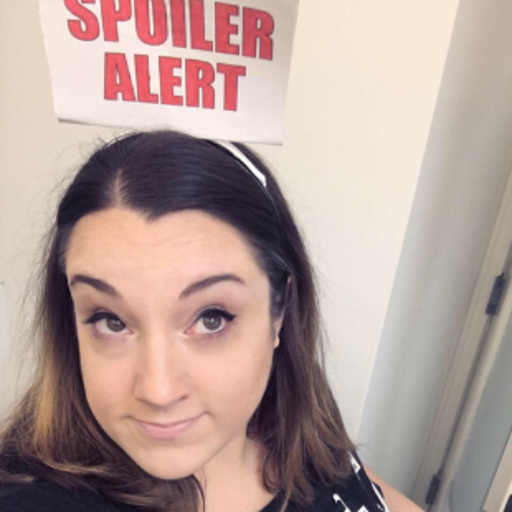
Kelly put her life-long love of movies, TV and books to greater use when she joined CinemaBlend as a freelance TV news writer in 2006, and went on to serve as the site’s TV Editor before joining the staff full-time in 2011 and moving over to other roles at the site. At present, she’s an Assistant Managing Editor who spends much of her time brainstorming and editing features, analyzing site data, working with writers and editors on content planning and the workflow, and (of course) continuing to obsess over the best movies and TV shows (those that already exist, and the many on the way). She graduated from SUNY Cortland with BA in Communication Studies and a minor in Cinema Studies. When she isn't working, she's probably thinking about work, or reading (or listening to a book), and making sure her cats are living their absolute best feline lives.
